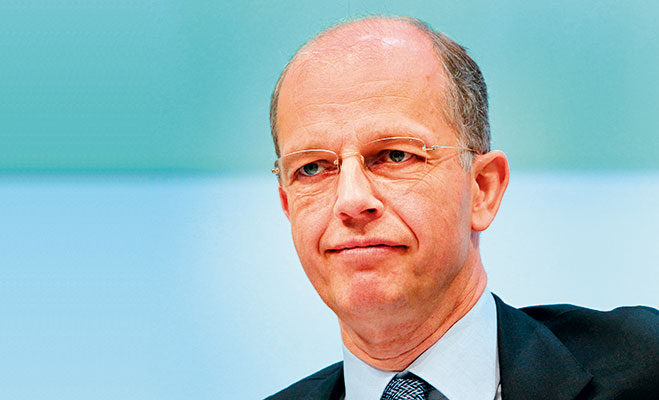
It would be fair to assume that the man at the top facet of a chemical company would be an expert in the field of science. Not so for Kurt Bock, the man who became the CEO of BASF in May 2011. While some would argue that a lack of intricate knowledge about molecules and covalent bonds would pose a challenge for many, Bock has hit the ground running at BASF, where only 50 percent of board members are required to boast sound chemistry credentials. Complementing the scientific flair of his fellow BASF top executives, Bock’s capability is rooted in honed business know-how and financial competence.
Determined to embrace the business sphere from a young age, Bock took education seriously and studied business administration at Münster and Cologne universities, as well as at Pennsylvania State University in the US. After completing his studies in 1982, he completed a three-year research stint at Bonn university in Germany, an undertaking which resulted in receiving a doctorate in economics. “Kurt Bock is an entrepreneur with extensive international experience. Under his leadership, he will continue the company’s success together with his colleagues on the Board of Executive Directors and the global BASF team,” said Eggert Voscherau, chairman of the Supervisory Board of BASF, by way of introducing the company’s new CEO.
Analytically minded
Born in Rahden, Germany, Bock grew up in a small town with a population of 16,000. Modest by default, he’s an individual who seems to have no desire to bask in the limelight and favours recreational activities such as a spot of countryside jogging above high profile events.
The tall and slim businessman’s timid character has been brought to light even more acutely, as he couldn’t be more different to his BASF predecessor Dr Jurgen Hambrecht. Hambrecht’s booming voice could be heard from afar, and he is certainly not media shy. There seem to be differences in the two men’s mental makeup, too. “Hambrecht thinks in black and white, while Bock can also see the various shades of grey,” observed a member of the supervisory board.
One thing they do have in common however, is their shared idea that continuity is an important aspect to any business strategy. Bock strongly supports the company’s longstanding approach, and this has worked in its favour for many years. Bock insisted when he stepped in as CEO last year he wouldn’t intend to bring about any major changes.
Optimistic target
Being the modest man that he is, Bock revealed a rather optimistic target for 2012. While sceptics assumed he would prove mistaken and see BASF shrink in 2012 due to the dark economic outlook, Bock emphasised that there’s no reason to call the figures into question. He pointed out that China continues to be an expanding market, despite Asia’s overall growth being less encouraging compared with last year. Along with the upbeat forecast, Bock also declared that the company is interested in further acquisitions.
His confidence doesn’t stem from business flair alone, and remains loyal to the company, having worked there predominantly since 1985. Entering the corporation through the finance department, in 1991 he was promoted to Head of Technology, Planning and Controlling in the engineering plastics division. He then took the drastic decision to leave his employer to join Robert Bosch Gmb, but was lured back to BASF in 1998, re-joining the company as Chief Financial Officer for its north American division. From 2003, BASFs valued executive has been a member of the board of executive directors and has served as BASF’s main CFO since 2003.
The chemical giant did well to reconnect with Bock in 1998, since this brought success to both parties. An achievement to both Bock and BASF, in 2001 Bock was honoured with Chemical Week’s CFO of the Year Award. The judges’ motivation highlighted the company’s financial performance, capital structure and risk management, as well as Bock’s role in BASF’s strategy, including acquisitions and divestitures. The quality of BASF’s communication to stakeholders and the transparency, quality and integrity of reported data by BASF were also praised by Robert Westervelt, Chemical Week’s editor in chief.
Aside from his stint at Robert Bosch GmbH, Bock has tirelessly served BASF for a total of 19 years. If he continues along his current path of success, there’s no reason why he should need to consider another venture any time soon.

